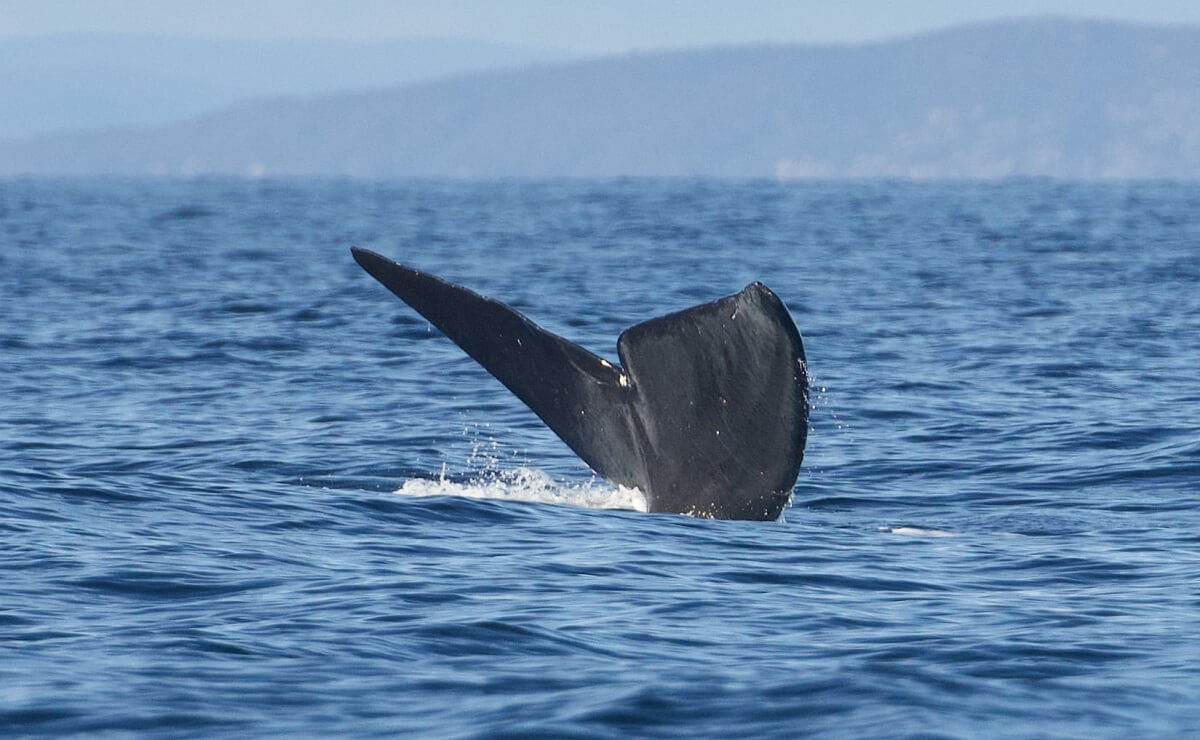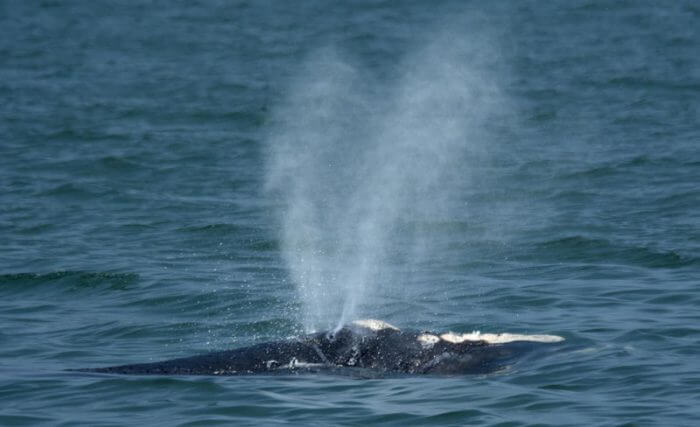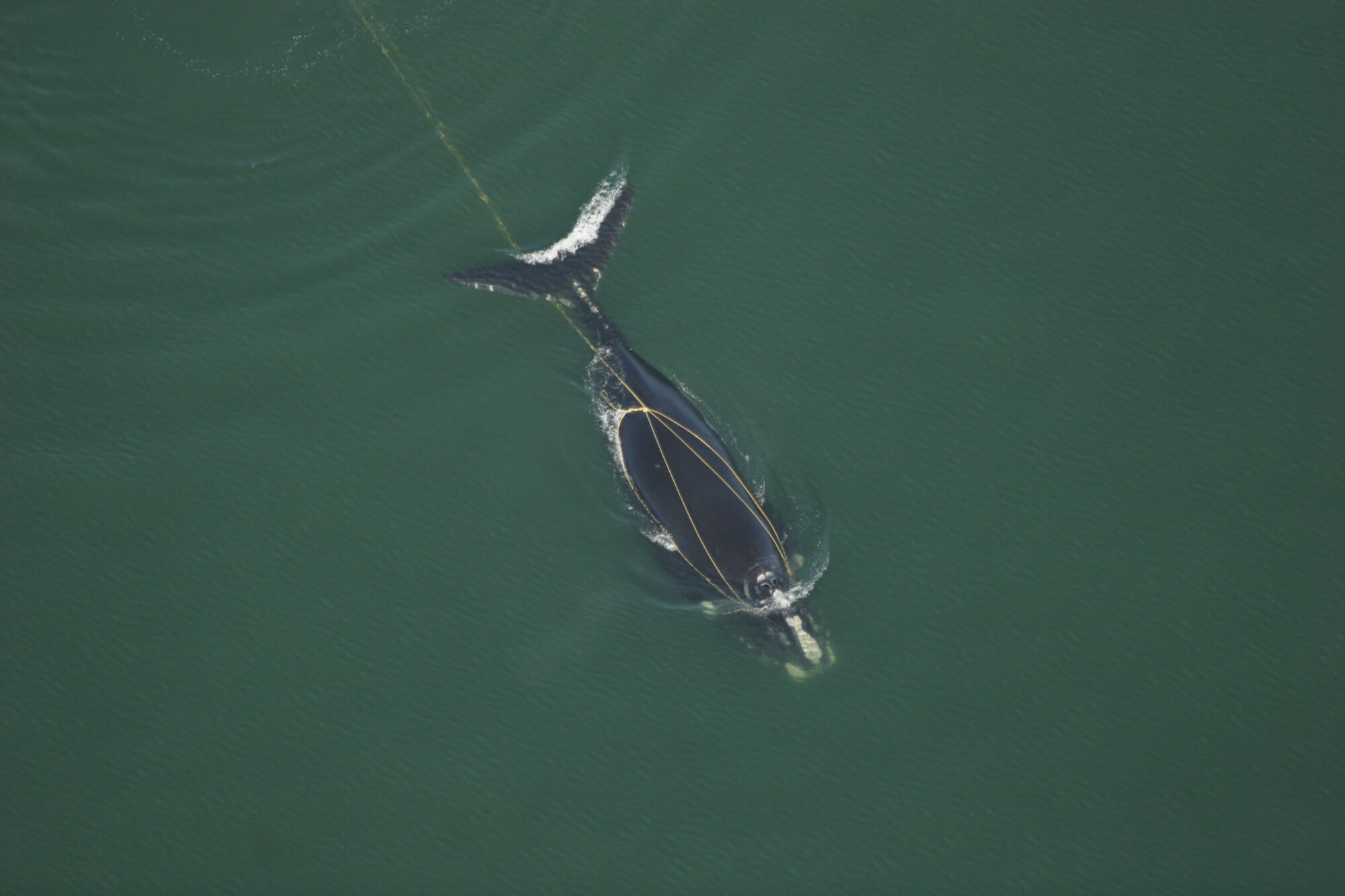For over a week now, Fisheries and Oceans Canada (DFO) has been attempting to locate a North Atlantic right whale that was spotted ensnared in fishing gear off the coast of Gaspé on May 19, 2022. Unfortunately, at the time of this article, there have been no further sightings of this distressed animal.
Sixth entanglement for ‘Sundog’
Thanks to aerial photographs taken at the time of the sighting, researchers were able to identify the whale as ‘Sundog,’ a 14-year-old female listed in the right whale catalogue as #3823. Researchers from the New England Aquarium, who have been tracking Sundog since she was born in 2008, point out that this young whale has already suffered no fewer than five entanglements in the course of her travels.
Prior to being spotted dragging ropes in Canadian waters, Sundog was most recently observed on March 11, 2022 near Cape Cod, Massachusetts. She was swimming freely at the time. So where did she get entangled? Impossible to say at the present time. “We don’t yet know what type of fishing gear the whale is entangled in, or where the gear came from,” DFO pointed out in a statement.
Since last Thursday, aerial overflights have been conducted in the Gulf of St. Lawrence to locate the whale and response teams tasked with rescuing the animal are currently mobilized. If the struggling whale is relocated and weather conditions allow, a release attempt is planned.
A precious female
At the age of 14, Sundog has never been seen with a calf, though her status as a potential future breeder makes her particularly valuable to her species. The North Atlantic right whale is one of the most vulnerable cetaceans on the planet, with a population estimated to number fewer than 360 individuals.
Since 2017, this species has been experiencing exceptionally high mortality, with 34 deaths reported in the span of 6 years. This excess mortality is notably due to a change in migratory patterns: for the past decade, North Atlantic right whales have been venturing out of their traditional summer feeding grounds in the Gulf of Maine and the Bay of Fundy. They are thus increasingly frequenting the Gulf of St. Lawrence, where they face new dangers.
The main causes of mortality for these whales, which live along the U.S. and Canadian coasts, are entanglements in fishing gear and collisions with ships. It is estimated that 80% of right whales experience at least one entanglement in their lifetime. Because of their impact on an animal’s energy expenditure, entanglements are also responsible for a low birth rate in the species; only 15 calves were tallied during the most recent breeding season.
Under surveillance!
In light of this, major efforts are being made each summer to protect the North Atlantic right whale in the Gulf of St. Lawrence. Once again this year, a number of regulations such as speed limits for vessels or the closure of certain seasonal fishing areas have been reinstated. In order to detect the presence of right whales, a wide range of techniques and devices is employed, including buoys equipped with hydrophones, underwater gliders and aerial surveys.







